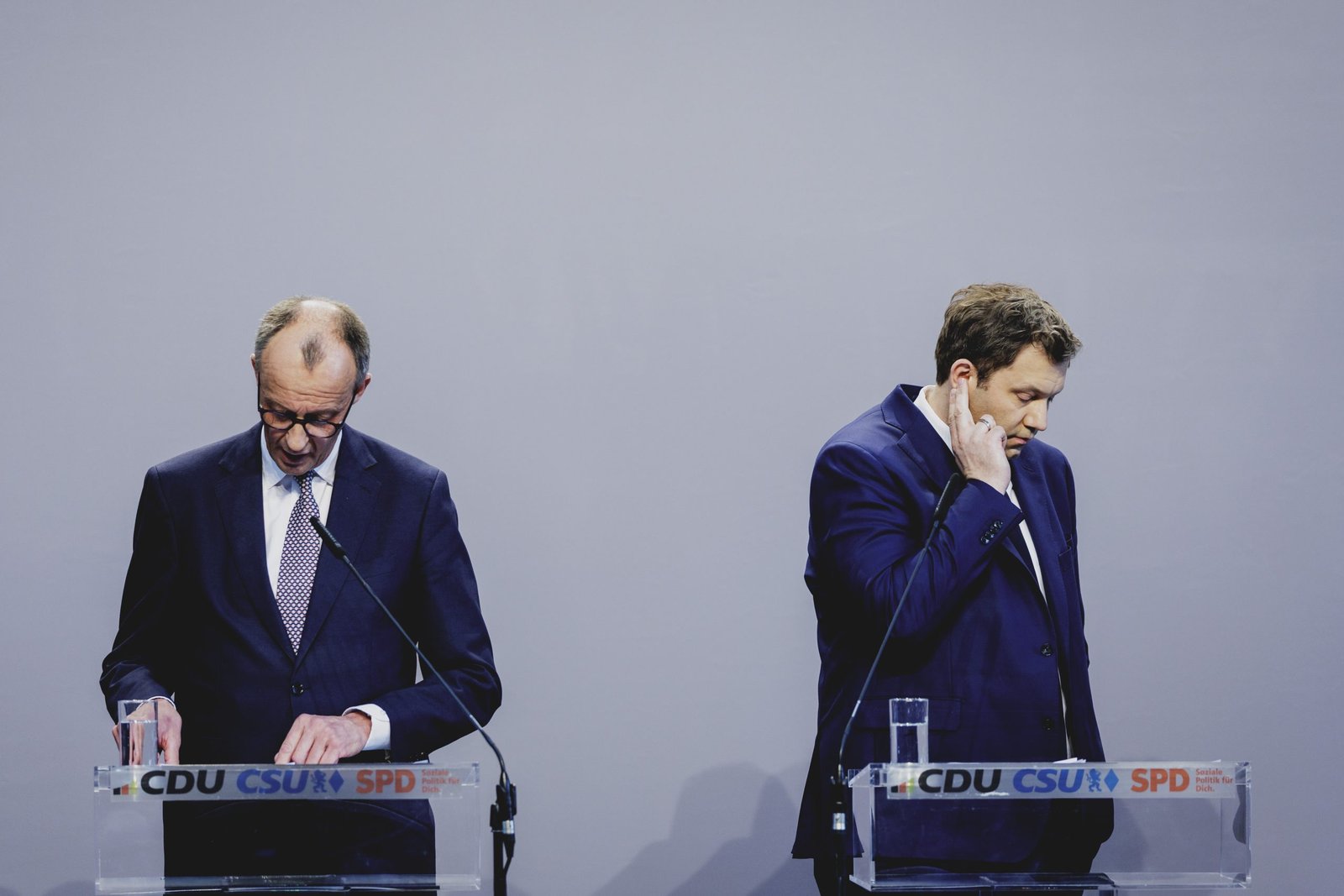BERLIN – German Chancellor Friedrich Merz has ruled out tax rises to plug a multi-billion euro hole in the budget, shrinking Berlin’s options to close the gap.
Despite record borrowing, the government still faces a €30 billion funding gap in 2027, with the shortfall expected to total nearly €200 billion over the full term.
On Sunday evening, Merz told German broadcaster ZDF, however, that higher taxes were off the table: “We have a coalition agreement, and we have agreed in this coalition agreement that taxes will not be increased.”
That put a stop to for German Finance Minister Lars Klingbeil of Merz’s coalition partner, the centre-left Social Democrats (SPD), who had previously hinted that he could raise taxes on higher incomes.
Responding to Merz, Klingbeil said on Sunday that he would be “curious what ideas the chancellor and others may still have” to close the budget gap.
Merz, meanwhile, appeared to be eyeing cuts to benefits, as he criticised the cost of Germany’s welfare system. “We’ve been living beyond our means for years,” he said, prompting a harsh rebuke from the SPD.
“This debate (…) is bullshit,” said Bärbel Bas, the German labour minister and SPD co-chair. Klingbeil also warned against generating savings from benefit cuts alone.
Bas’ labour and social ministry is slated to account for over a third of Germany’s €500 billion budget in 2025. Its spending items include unemployment benefits and pension payments, worth over a quarter of the total budget, or some €135 billion.
Echoes of the past
The row has echoes of the squabbling that sank last year’s three-party government of the SPD, Greens, and Free Democrats (FDP).
The parties had failed to draft a workable budget, as the FDP blocked a reform of Germany’s strict constitutional deficit limit – the so-called ‘debt brake’ – and the SPD and Greens ruled out benefit cuts.
While Merz’s coalition has since watered down the debt brake, the legislation merely exempted some defence spending and unlocked extra funds for Germany’s crumbling infrastructure.
The chancellor denied on Sunday that there was a clash within the coalition, however, claiming that the disagreement was just a matter of “straightening things out”.
“The fact that the SPD has different ideas on this issue is just as acceptable as the fact that we have our own ideas on other issues,” he said.
(mm)





